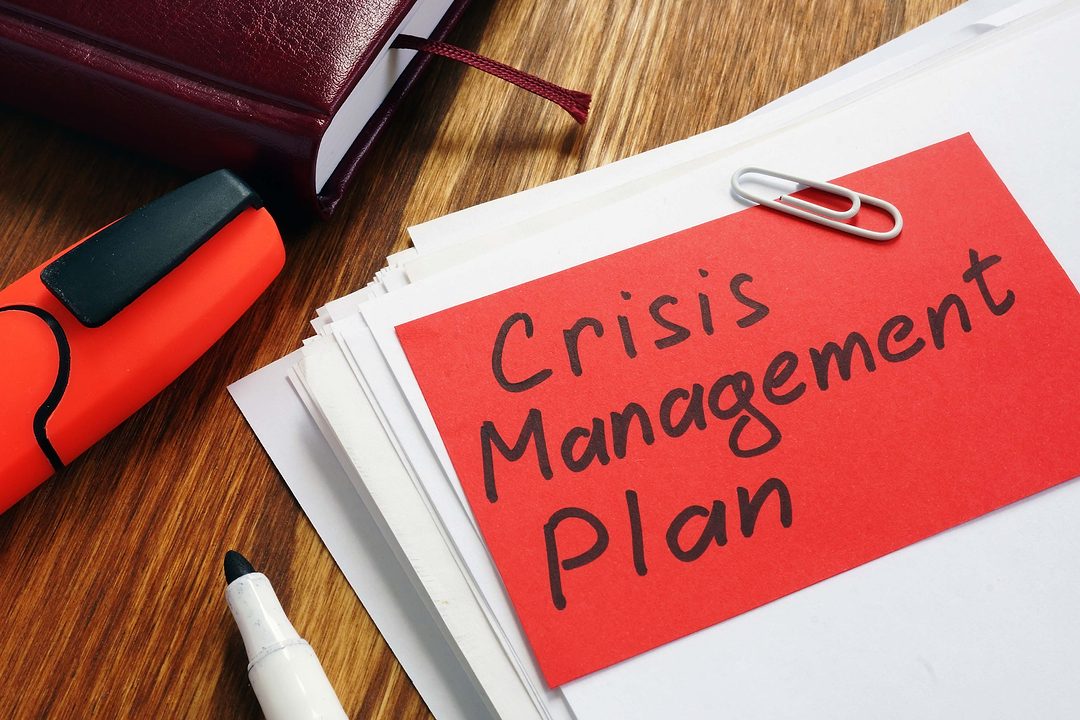Have a Crisis Plan in Place for When — Not If — a Problem Arises
Your company’s very survival might depend on how well you plan.

If you run a business dealing with the general public, you’re involved in public relations. And no matter how successful you are or how well you try to meet your customers’ demands, you will face a business crisis.
This doesn’t mean that you did something wrong or are at fault. It could be that a process broke down, a disgruntled former employee started an online campaign against you, or someone made a mistake.
However, how you deal with the crisis speaks volumes more than what the crisis is about.
This is why your business — any business — needs a crisis management plan.
This plan needs to be developed well ahead of any crisis and list the steps you need to follow in responding to any issue that may arise.
Your company’s future depends on swift and effective communication through as many channels as possible. If you don’t have a plan in place, sit down and hash it out or contact a public relations agency to guide you about protecting your reputation, revenue and employees.
Here are some things you shouldn’t do when faced with a business crisis:
1. Do not assume the problem will go away. It won’t. Immediate action is necessary to stay on top of the issue.
2. Do not downplay the situation. Even if it’s not something you would find to be awful, it may very well be horrible to the customer. Put yourself in the other party’s shoes and apologize with sincerity.
3. Do not try to shift responsibility to someone or something else. You are the person in charge and the buck stops with you. Therefore, the problem is also yours and you need to fix it. Now.
4. Do not point fingers or claim someone else made you do it. Take ownership of the issue and correct it with competence and professionalism.
5. Do not bury your apology in a flurry of other press releases or media responses. One of the things you should have been doing before the bad publicity is positive outreach through a series of press releases, blogs and social media posts. If you build up goodwill before a crisis, the positive stories will take some of the negativity off the current problem. Get the apology out to all your media channels quickly and without hiding behind fluff.
6. Do not become overly dramatic. Feigning alarm makes you look disingenuous to your customers and the public at-large. Your apology should be sincere and your acknowledgment should show genuine concern.
7. Do not respond with an angry, knee-jerk reaction. Your responses should be well thought-out and professional. You’ll regret responding in a cavalier or ill-tempered manner and you won’t be able to take it back. Once something is on the internet, it’s there forever.
In addition to knowing what not to do in a crisis, it’s also important that your plan considers all contingencies and that you follow your plan.
Appoint a response team
Your business should already have a response team in place before any crisis occurs. This team is responsible for speaking to the public and media, getting your message out on your owned media channels — your blog and social media accounts, crafting a press release and briefing your internal staff and other stakeholders.
The team could be comprised of your business’ core members and if you have a public relations agency, their crisis management team.
Your message should be direct and honest. Address the situation with transparency and provide details about how you will remedy the situation. Apologize, take ownership and handle the problem.
Identify and address the affected parties
If the crisis involves a customer or some other external party, you should immediately begin working to address their concerns. However, there are internal parties who should also be apprised of the situation. These can include employees, stockholders, business partners and other customers.
Part of taking ownership is to meet the problem head-on and address it with all those who have a stake in your business.
Monitor and review the situation
Once you’ve done the initial mea culpas, it’s important that you continue to monitor the situation for the duration. Track what people are saying about your company in the press, on social media or on review sites. By monitoring the company’s brand, stakeholders and competitors, you can continue to address any repercussions of the initial crisis.
Once the crisis is over, you should also consider a post-action review. This review can help you hone your messaging and rollout should another crisis eventually occur.
This may seem like a lot of work. It is. However, it’s essential that you put a plan in place for when a crisis befalls your company and stick to your crisis management goals. Your company’s very survival might depend on how well you plan.





